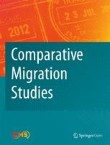This collection of papers compares migration and resultant processes of socio-demographic and cultural diversification in the UK and Japan. It examines different aspects of migration and integration in these two countries from multiple disciplinary perspectives and using a wide range of methods. Immigrants form a core part of the society in not only countries such as the UK but also Japan where the onset of contemporary migration is more recent. Though facing different political circumstances and social realities, they have many areas of comparability and convergence. Both have had old and new forms of migration and diversities and although there are many political, economic, and social differences they share the challenge of attracting sufficient skilled and unskilled labour. Either have, or are attempting to, resist high levels of migration yet both understand that future prosperity depends on migration. This special issue deepens the empirical knowledge of ongoing migration and integration processes in these two countries through a comparative lens, uses empirical comparison to push for theoretical development, and, by bringing in two contrasting cases and multi-disciplinary approaches, offers methodological innovation. The contributors to this issue examine a wide range of topical issues from attitudes to, and racialisation of, migrants; labour market challenges, law and policy; migration infrastructures, and the production of illegality; transnational marriage and integration; conviviality and contact in migrant-run restaurants; international retirement migration; refugee integration and practices of migrant retention. The issue offers new directions for comparative work on migration and, for Japanese scholarship to bring a new perspective to thinking about migration and associated diversifications.
Edited by Jenny Phillimore, Gracia Liu-Farrer and Nando Sigona
Migrations and diversifications in the UK and Japan
Japan and the UK are long-established countries of immigration which although having different histories both share experience as colonial powers which have shaped their somewhat hostile attitudes towards migr...
